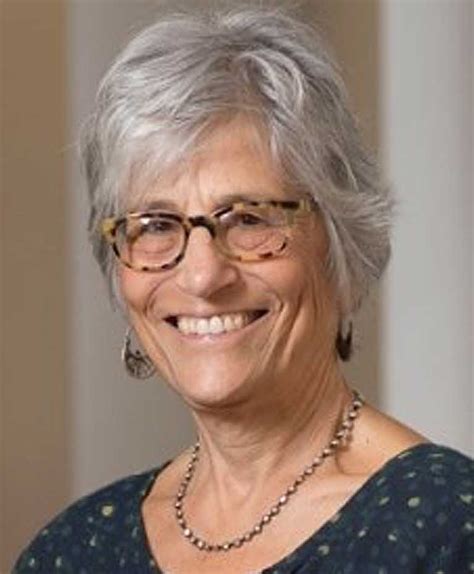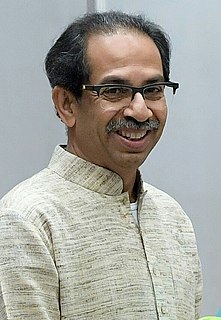A Quote by Linda Gordon
The nuclear family must be destroyed, and people must find better ways of living together.... Whatever its ultimate meaning, the break-up of families now is an objectively revolutionary process.... No woman should have to deny herself any opportunities because of her special responsibilities to her children... Families will be finally destroyed only when a revolutionary social and economic organization permits people's needs for love and security to be met in ways that do not impose divisions of labor, or any external roles, at all.
Quote Topics
Any
Because
Better
Better Way
Better Ways
Break
Children
Deny
Destroyed
Divisions
Economic
External
Families
Family
Finally
Find
Her
Herself
Impose
Labor
Living
Living Together
Love
Meaning
Met
Must
Needs
Now
Nuclear
Only
Opportunities
Organization
People
Permits
Process
Responsibilities
Revolutionary
Roles
Security
Should
Should Have
Social
Special
Together
Ultimate
Up
Ways
Whatever
Will
Woman
Related Quotes
The nuclear family must be destroyed, and people must find better ways of living together. ...Whatever its ultimate meaning, the break-up of families now is an objectively revolutionary process. ...Families have supported oppression by separating people into small, isolated units, unable to join together to fight for common interests.
For a woman ... to explore and express the fullness of her sexuality, her ambitions, her emotional and intellectual capacities, her social duties, her tender virtues, would entail who knows what risks and who knows what truly revolutionary alteration to the social conditions that demean and constrain her. Or she may go on trying to fit herself into the order of the world and thereby consign herself forever to the bondage of some stereotype of normal femininity - a perversion, if you will.
The whole world population rests on women. You have to start with the woman. And the woman will make her own decisions. If you want to have five or ten children, fine. You can have big families or small families, but you have the family you feel you can afford or feed. In China the one - child policy is already finished - on its way out because the economic conditions end up producing the same effect. If people want an expensive flat in a place like Shanghai, you can't have more than one child or two.
Extended families have never been the norm in America; the highest figure for extended-family households ever recorded in Americanhistory is 20 percent. Contrary to the popular myth that industrialization destroyed "traditional" extended families, this high point occurred between 1850 and 1885, during the most intensive period of early industrialization. Many of these extended families, and most "producing" families of the time, depended on the labor of children; they were held together by dire necessity and sometimes by brute force.
A man in love ... is the master, so it seems, but only if his lady friend permits it! The need to interchange the roles of slave and master for the sake of the relationship is never more clearly demonstrated than in the course of an affair. Never is the complicity between victim and executioner more essential. Even chained, down on her knees, begging for mercy, it is the woman, finally, who is in command ... the all powerful slave, dragging herself along the ground at her master's heels, is now really the god. The man is only her priest, living in fear and trembling of her displeasure.
We love being in love, that's the truth on't. If we had not met Joan, we should have met Kate, and adored her. We know our mistresses are no better than many other women, nor no prettier, nor no wiser, nor no wittier. 'Tis not for these reasons we love a woman, or for any special quality or charm I know of; we might as well demand that a lady should be the tallest woman in the world, like the Shropshire giantess, as that she should be a paragon in any other character, before we began to love her.
To marry a woman with any success a man must have a total experience of her, he must come to see her and accept her in time as well as in space. Besides coming to love what she is now, he must also come to realize and love equally the baby and the child she once was, and the middle-aged woman and the old lady she will eventually become.
The woman in labor must have NO STRESS placed upon her. She must be free to move about, walk, rock, go to the bathroom by herself, lie on her side or back, squat or kneel, or anything she finds comfortable, without fear of being scolded or embarrassed. Nor is there any need for her to be either "quiet" or "good."
Whoever sides with the revolutionary people is a revolutionary. Whoever sides with imperialism, feudalism and bureaucrat-capitalism is a counter-revolutionary. Whomever sides with the revolutionary people in words only but acts otherwise is a revolutionary in speech. Whoever sides with the revolutionary people in deed as well as in word is a revolutionary in the full sense.
A part of a healthy conscience is being able to confront consciencelessness. When you teach your daughter, explicitly or by passive rejection, that she must ignore her outrage, that she must be kind and accepting to the point of not defending herself or other people, that she must not rock the boat for any reason, you are NOT strengthening her posocial sense, you are damaging it-and the first person she will stop protecting is herself.
Contrary to popular opinion, the most important characteristic of a godly mother is not her relationship with her children. It is her love for her husband. The love between husband and wife is the real key to a thriving family. A healthy home environment cannot be built exclusively on the parents' love for their children. The properly situated family has marriage at the center; families shouldn't revolve around the children.
He destroyed in her the knowing, doubting, sophisticated Ella, and again and again he put her intelligence to sleep, and with her willing connivance, so that she floated darkly on her love for him, on her naivety, which is another word for a spontaneous creative faith. And when his own distrust of himself destroyed this woman-in-love, so that she began thinking, she would fight to return to naivety.






































